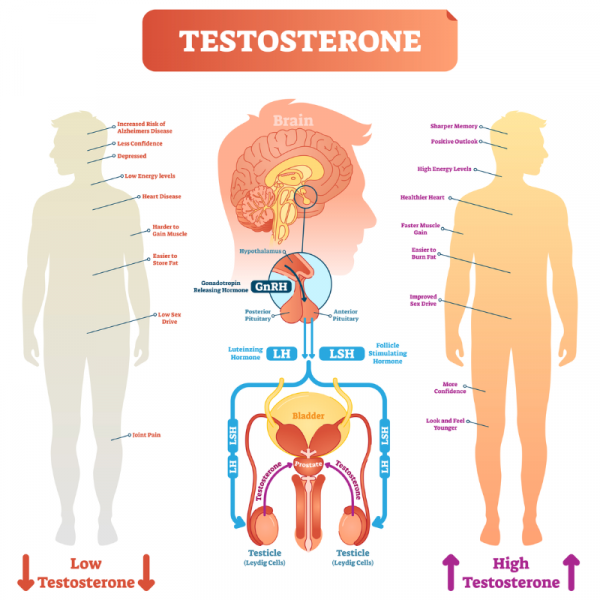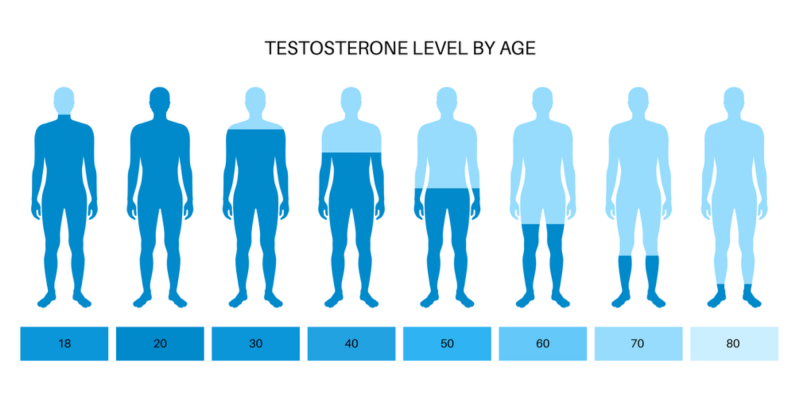Testosterone deficiency – low testosterone levels in men – happens when your body can’t make enough testosterone. It’s also called hypogonadism.
Testosterone is the most important sex hormone in men. Your brain and your testicles (testes or male gonads) play a role in the production of testosterone. Your body starts producing testosterone during puberty and levels of the hormone start decreasing from about the age of 30 years onwards.
The hypothalamus and pituitary gland in your brain make the hormones that stimulate your testicles to make testosterone.
Low testosterone can have a significant impact on your health and how you feel, as testosterone is important for maintaining the characteristics that make you look and feel like a man. It also has a role in sexual function.

Image credit: Depositphotos
Common symptoms
- Low libido (low sex drive).
- Erectile dysfunction.
- Enlarged or painful breasts (gynaecomastia).
- Fertility problems (inability to father children).
Uncommon or vague symptoms
- Reduced testicle size.
- Reduced energy or mood.
- Decreased muscle mass and strength.
- Less body hair.
- Bones that are easily broken.
- Hot flushes and night sweats.
If you have a pituitary tumour or pituitary disease you may have vision problems, double vision or headaches.
If testosterone deficiency develops before puberty it may also cause:
- delayed onset of puberty
- lack of deepening of the voice
- reduced growth of the penis and testicles
- excessive growth of the arms and legs compared with the trunk of the body.







